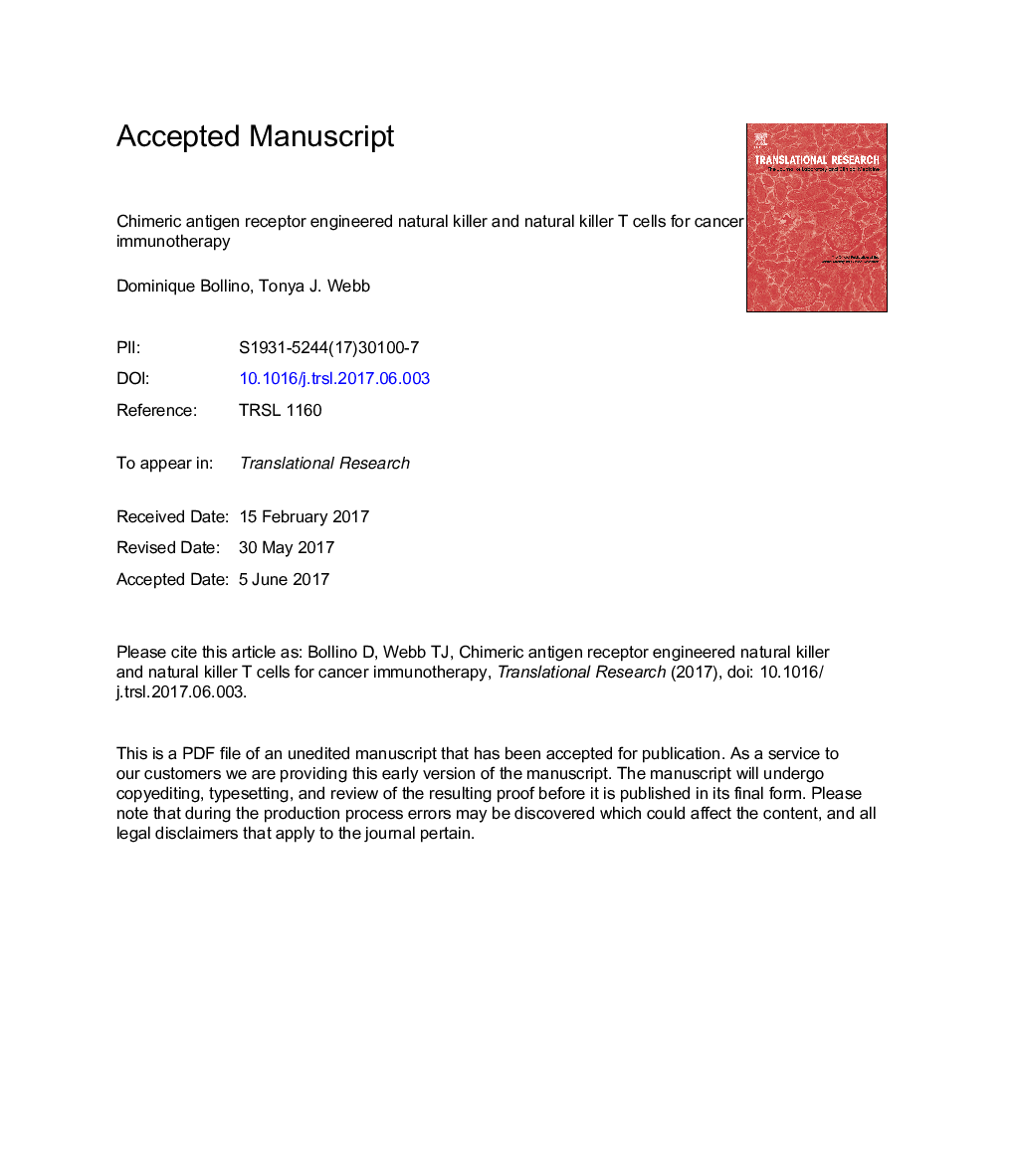| Article ID | Journal | Published Year | Pages | File Type |
|---|---|---|---|---|
| 5684960 | Translational Research | 2017 | 30 Pages |
Abstract
Natural killer (NK) cells of the innate immune system and natural killer T (NKT) cells, which have roles in both the innate and adaptive responses, are unique lymphocyte subsets that have similarities in their functions and phenotypes. Both cell types can rapidly respond to the presence of tumor cells and participate in immune surveillance and antitumor immune responses. This has incited interest in the development of novel cancer therapeutics based on NK and NKT cell manipulation. Chimeric antigen receptors (CARs), generated through the fusion of an antigen-binding region of a monoclonal antibody or other ligand to intracellular signaling domains, can enhance lymphocyte targeting and activation toward diverse malignancies. Most of the CAR studies have focused on their expression in T cells; however, the functional heterogeneity of CAR T cells limits their therapeutic potential and is associated with toxicity. CAR-modified NK and NKT cells are becoming more prevalent because they provide a method to direct these cells more specifically to target cancer cells, with less risk of adverse effects. This review will outline current NK and NKT cell CAR constructs and how they compare to conventional CAR T cells, and discuss future modifications that can be explored to advance adoptive cell transfer of NK and NKT cells.
Keywords
KirTGF-βAMLTNFGvHDαGalCerNKTAAPCGM-CSFNCRIPSCACTCRSTMETCrscFvADCCnatural killerα-galactosylceramideantibody-dependent cell-mediated cytotoxicityHuman leukocyte antigenHLAAdoptive cell transferTAMtransforming growth factor-βDendritic cellartificial antigen-presenting cellsInduced pluripotent stem cellsCytokine Release SyndromeGranulocyte macrophage colony stimulating factortumor necrosis factornatural killer TTRAILsingle-chain variable fragmentacute lymphoid leukemiaAcute lymphoblastic leukemiaTNF-related apoptosis-inducing ligandCARTumor-associated macrophagemajor histocompatibility complexMHCTumor microenvironmentALLGraft versus host diseasechimeric antigen receptorT cell receptorkiller immunoglobulin-like receptorsNatural cytotoxicity receptors
Related Topics
Health Sciences
Medicine and Dentistry
Medicine and Dentistry (General)
Authors
Dominique Bollino, Tonya J. Webb,
